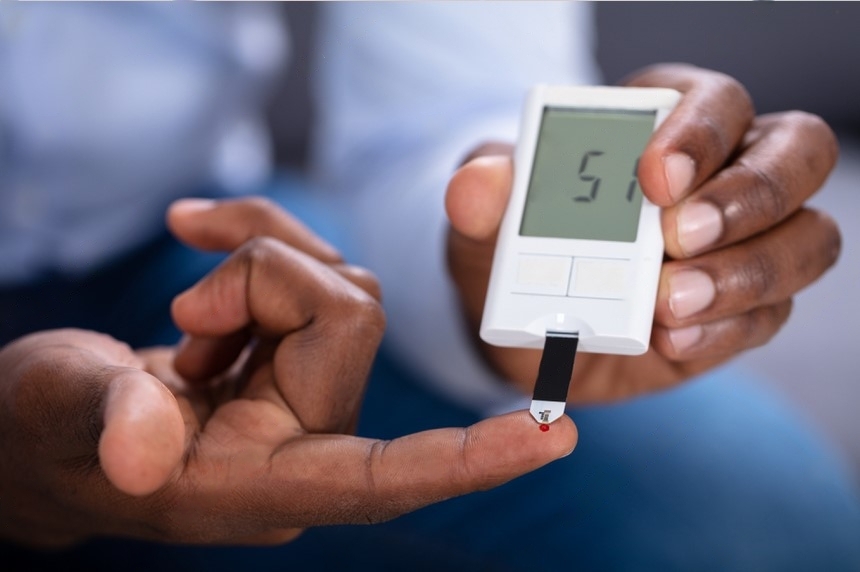High blood sugar, also known as hyperglycemia, is a condition that occurs when there is an excessive amount of glucose (sugar) in your bloodstream.
This condition is a hallmark of diabetes but there are other situations in which high blood sugar can occur. Understanding the causes of high blood sugar is crucial for managing and preventing its complications. In this article, we’ll look into factors that can lead to elevated blood sugar levels and explore the signs of high sugar levels. We’ll also explore ways to lower blood sugar effectively.
What causes High Blood Sugar?
1. Carbohydrate Intake
One of the primary factors contributing to high blood sugar is the consumption of high-carbohydrate foods. Carbohydrates are broken down into glucose that enters the bloodstream and raises blood sugar levels. To manage blood sugar, it’s essential to monitor your carbohydrate intake and choose complex carbohydrates like whole grains over simple sugars.
2. Insulin Resistance
Insulin is a hormone produced by the pancreas and it plays a crucial role in regulating blood sugar. When a person experiences insulin resistance, the body’s cells do not respond effectively to insulin and that can cause elevated blood sugar. This condition is often a precursor to type 2 diabetes.
3. Lack of Physical Activity
Physical inactivity can lead to weight gain and insulin resistance, both of which contribute to high blood sugar. Regular exercise helps your body use glucose more effectively and can lower blood sugar levels.
4. Stress
Chronic stress can trigger the release of stress hormones, which can elevate blood sugar. Managing stress through relaxation techniques and mindfulness can help maintain healthy blood sugar levels.
5. Illness or Infection:
Certain illnesses and infections can cause temporary spikes in blood sugar. It’s essential to monitor blood sugar levels when you’re sick and adjust your diabetes management plan as needed.
6. Medications
Some medications like corticosteroids and certain antipsychotic drugs, can raise blood sugar levels.
Signs of High Blood Sugar Levels
Recognizing the signs of high blood sugar is very important for timely intervention to avoid critical outcomes. Common symptoms include:
- Frequent Urination: High blood sugar levels lead to increased urine production, causing frequent trips to the restroom.
- Excessive Thirst: When you urinate too often, dehydration can result from this frequent urination leading to intense thirst.
- Fatigue: Elevated blood sugar can make you feel very tired.
- Blurred Vision: High sugar levels can affect the eyes, causing blurred vision.
- Slow Healing: Wounds and cuts may take longer to heal when blood sugar is high.
- Increased Hunger: Despite high blood sugar, cells may not be receiving adequate glucose, leading to increased hunger.
Lowering Blood Sugar
Managing high blood sugar is essential for overall health. Here are some strategies to lower blood sugar:
- Healthy Diet: Focus on a balanced diet rich in whole grains, lean proteins, vegetables, and fruits. Monitor carbohydrate intake and opt for foods with a low glycemic index.
- Regular Exercise: Engage in regular physical activity, such as walking, jogging, or cycling, to improve insulin sensitivity and lower blood sugar.
- Medication: For people with diabetes, medications or insulin therapy may be necessary to regulate blood sugar.
- Stress Management: Practice stress-reduction techniques like deep breathing, meditation, or yoga to help keep blood sugar levels in check.
Conclusion
High blood sugar can have very serious health consequences if it is left unmanaged.
By making lifestyle changes, monitoring your diet, and staying physically active, you can effectively lower blood sugar levels and reduce the risk of complications associated with high blood sugar.
If you have concerns about your health in general and would like to know the state of your well-being, book an at-home test with Healthtracka




